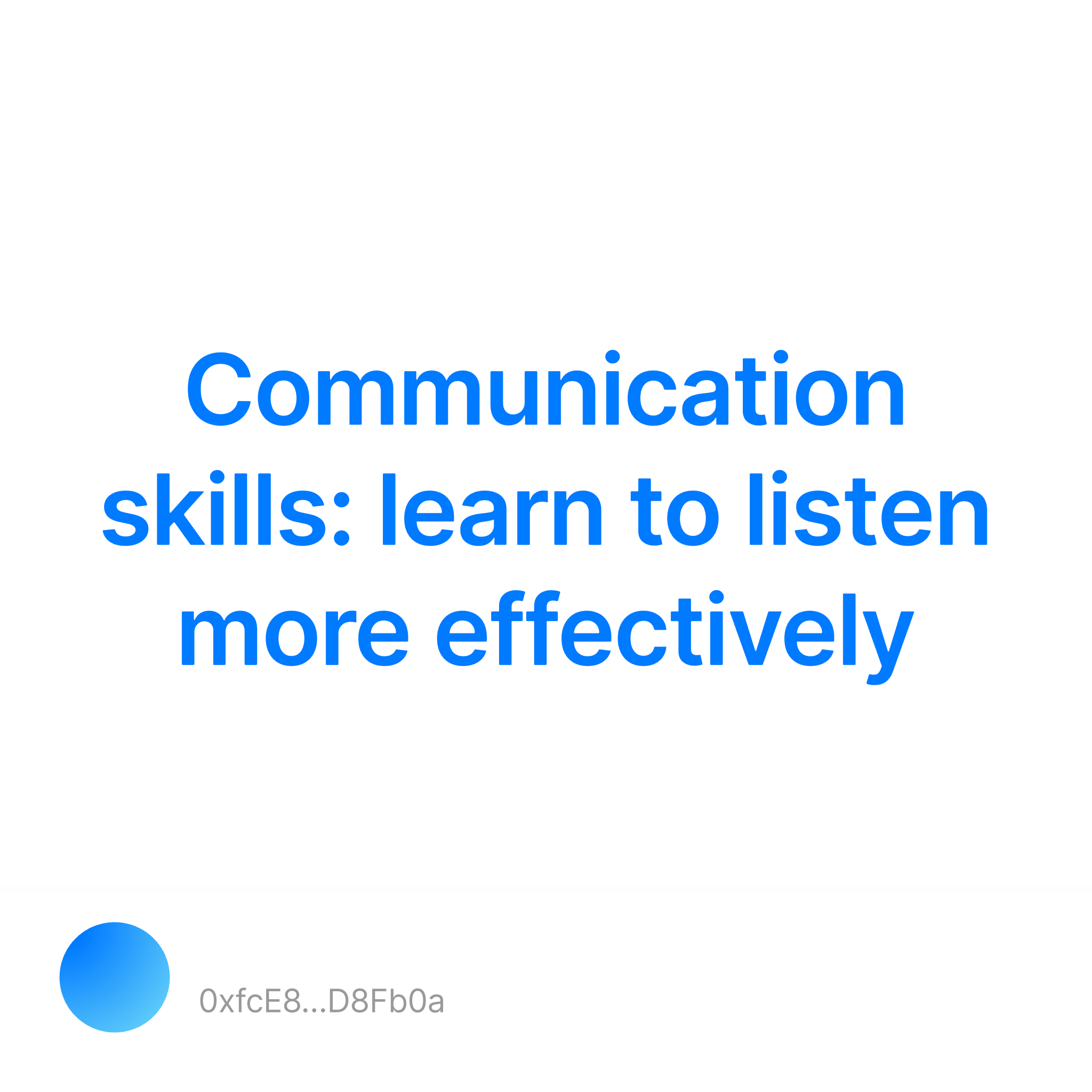Do you know that 90% of people have the loss of general communication information? Listening effectively in conversation may be more important than speaking. The article provides you with several principles to help you become a successful listener.
A survey of listening games
There is such a listening game: in a group of two, one person speaks for 3 minutes continuously, and the other person is only allowed to listen, no voice, no interruptions, and can have body language. Then switch over. After that, everyone takes turns to talk first. What did they hear each other say? Then let the other party talk about whether the information described by the listener is what he wants to express?
The results shown at last are similar to those in other training courses. 90% of the people have the loss of general communication information, 75% of the people have the loss of important communication information, and 35% of the listeners and speakers have serious differences on the communication information. For example, one of them wants to express that "marriage needs to be managed", while the other party listens to "don't force yourself too much in marriage", This is a complete distortion of communication information.
How to learn to listen more effectively
Effective listening is a skill that can be acquired through learning. Knowing your listening behavior will help you become an efficient listener. Thomas, a famous American psychologist. Gordon's research found that listening can be divided into three levels according to the behavioral characteristics that affect the efficiency of listening. The process of a person from level one to level three listener is the process of improving his communication ability and efficiency.
Three levels of "listening"
Level 1: at this level, the listener does not pay attention to what the speaker is saying at all, pretending to listen but actually considering other unrelated things, or thinking of Refutation in his heart. He is more interested in speaking than listening. Listening at this level leads to the rupture of relationships, the emergence of conflicts and poor decision-making.
Level 2: the key to interpersonal communication is to understand the meaning of words. At the second level, the listener mainly listens to the words and contents, but often misses the meaning expressed by the speaker through intonation, body posture, gestures, facial expressions and eyes. This will lead to misunderstanding, wrong behavior, waste of time and neglect of negative emotions. In addition, because the listener nods and agrees to show that he is listening without asking for clarification, the speaker may mistakenly think that what he said is completely understood.
Level 3: people at this level show the characteristics of an excellent listener. This kind of listener looks for the interested part in the speaker's information, and they think it is an opportunity to obtain new and useful information. Efficient listeners know their personal preferences and attitudes, and can better avoid making arbitrary comments on the speaker or being influenced by stimulated words. Good listeners are not in a hurry to make judgments, but empathize with each other's feelings. They can put themselves in a position to look at things, more asking than defending.
Learn to listen at a high level
According to statistics, about 80% of people can only listen at level one and level two, and only 20% of people can listen at level three. How to achieve high-level listening? Here are some ways to learn high-level listening: concentration: through nonverbal behaviors, such as eye contact, a relaxed posture, a friendly facial expression, and a pleasant tone of voice, you will establish a positive atmosphere. If you show attention, concentration and relaxation, the other person will feel valued and safer.
Show interest in each other's needs: you can show interest in each other's needs by listening with understanding and mutual respect.
Listen with a caring attitude: it is like a soundboard, so that the speaker can test your opinions and emotions, and feel that you appear in a non judgmental and non judgmental attitude. Don't ask many questions at once. Constant questioning often gives the impression that the listener is being "roasted" Act like a mirror: give feedback on what you think the other person was thinking. Summarize the speaker's content to make sure you fully understand what he said.
Avoid preconceptions: this happens when you are personally engaged. Investing in a problem with a personal attitude often leads to anger and hurt feelings, or makes you jump to conclusions too early, which is arbitrary.
Use spoken language: use simple sentences such as "Er", "Oh", "I understand", "yes" or "interesting" to agree with the other party's statement. Encourage the speaker to talk more by saying "talk and listen", "let's discuss", "I want to hear your thoughts" or "I'm very interested in what you said".
Following these principles will help you become a successful listener. Cultivate the habit of applying these principles every day and internalize them into your listening ability. You will be surprised at the results.
